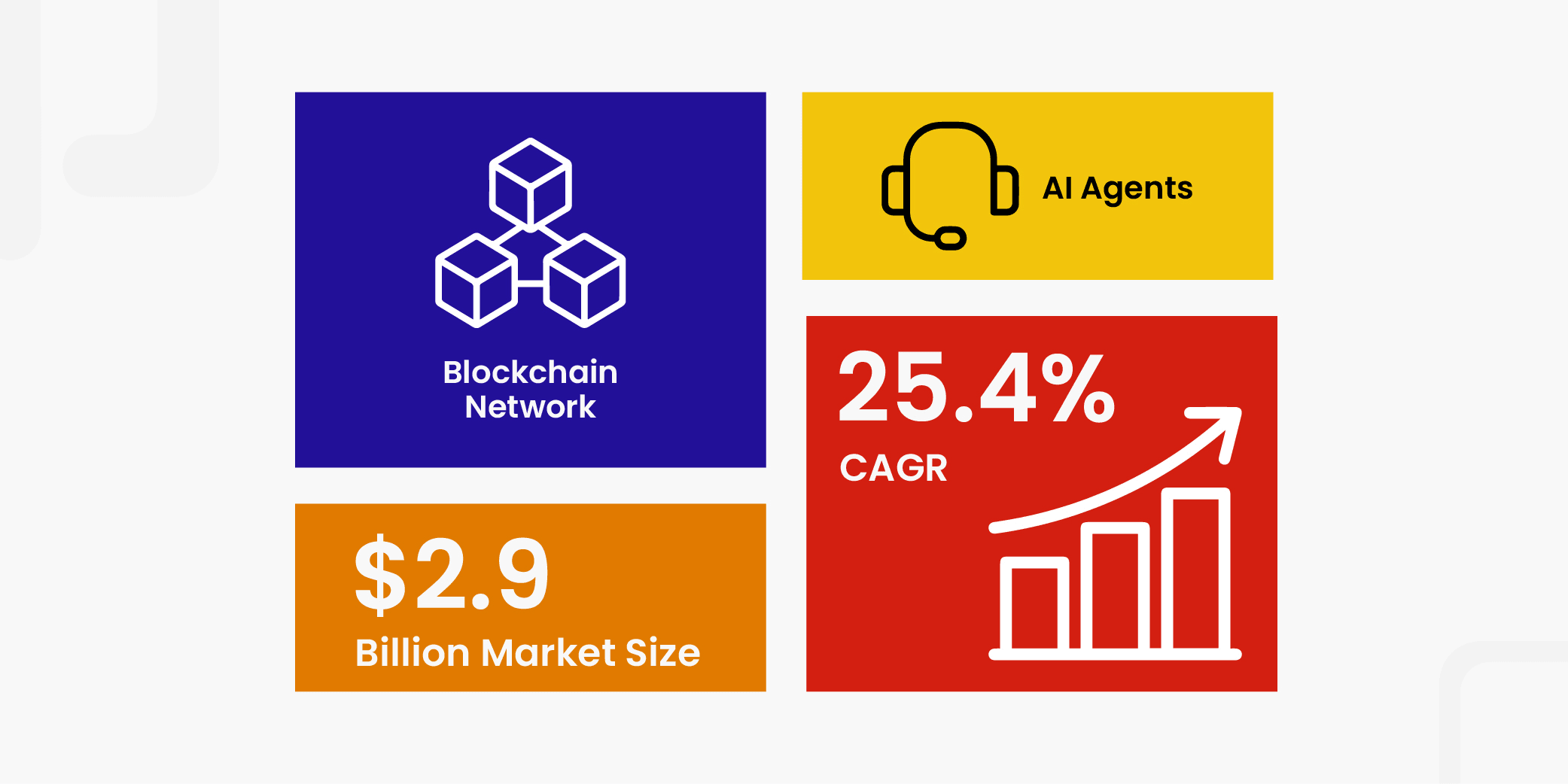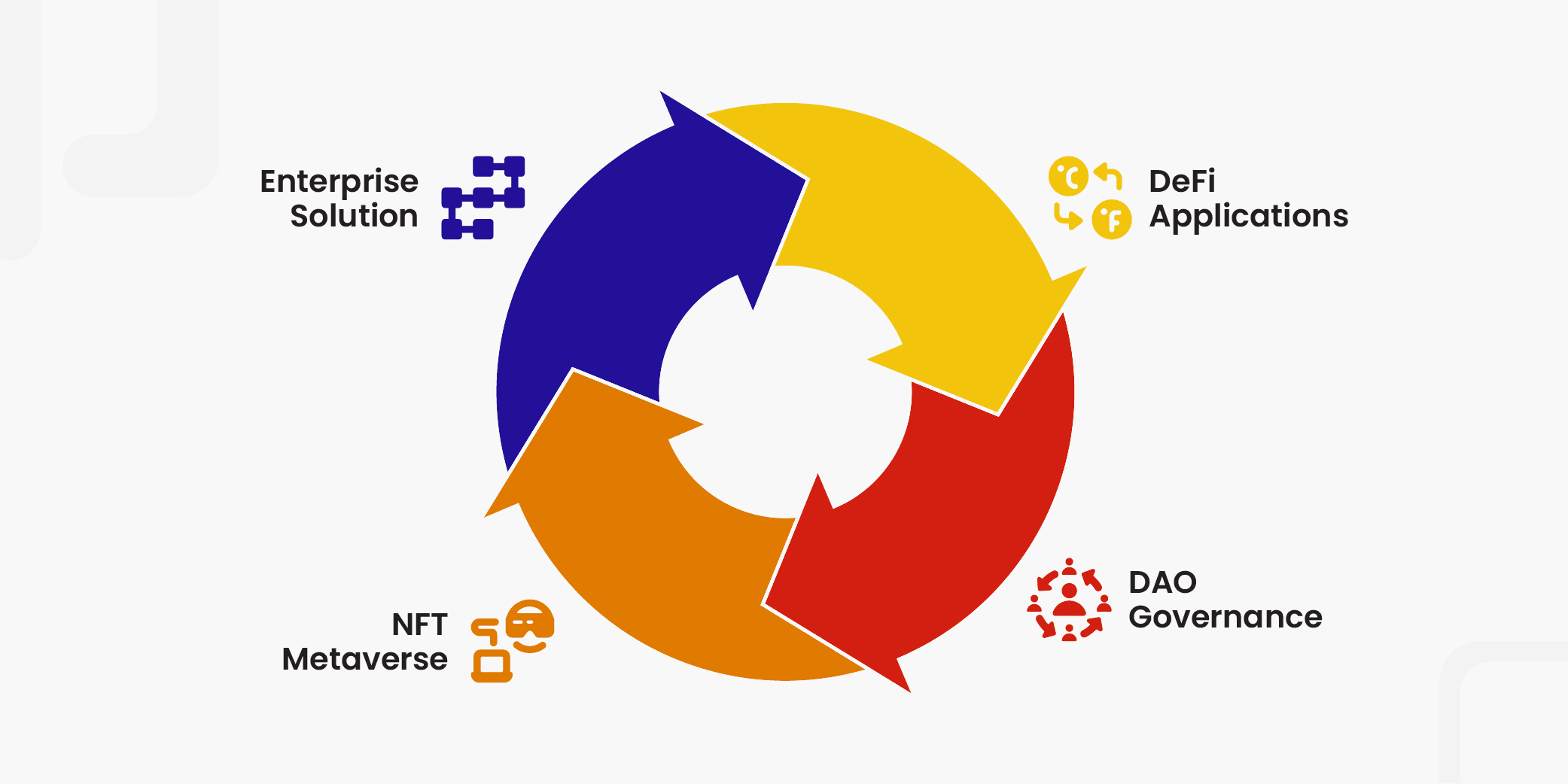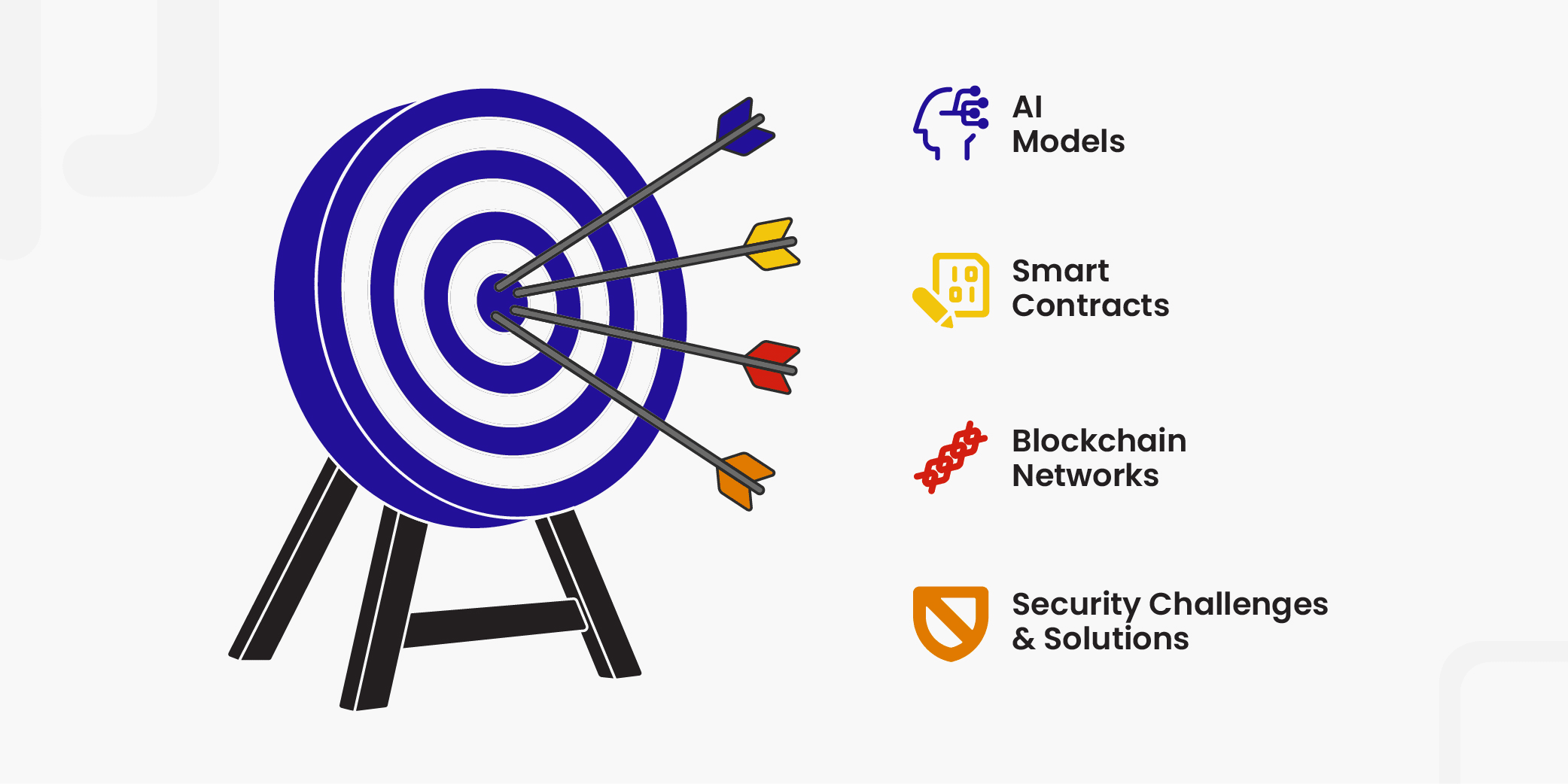August 7, 2025
Lorem ipsum dolor sit amet, consectetur adipiscing elit. Suspendisse varius enim in eros elementum tristique. Duis cursus, mi quis viverra ornare, eros dolor interdum nulla, ut commodo diam libero vitae erat. Aenean faucibus nibh et justo cursus id rutrum lorem imperdiet. Nunc ut sem vitae risus tristique posuere.
The convergence of artificial intelligence and Web3 has moved far beyond theoretical debates. In 2025, it is shaping real-world applications that redefine how businesses and decentralized systems operate. Web3 AI is no longer a niche experiment. It is a strategic tool for organizations seeking agility, automation, and transparent intelligence.
At the core of this shift is the seamless integration of AI into blockchain-based networks. From financial systems to content platforms and decentralized governance, AI in Web3 is enabling faster decisions, better data interpretation, and autonomous workflows.
For enterprises, especially those engaging in digital infrastructure or tokenized assets, understanding how to work with a capable AI development company or blockchain development services partner is essential. This guide explains what Web3 AI means, where it’s going, and how it can reshape your business model this year.
At its core, Web3 AI refers to the application of artificial intelligence in decentralized systems. While Web3 focuses on peer-to-peer protocols, smart contracts, and blockchain-based identity, AI adds decision-making capabilities, predictive analysis, and adaptive responses.
Think of Web3 AI as the shift from static protocols to responsive systems. In practical terms, this could mean:
This isn’t theoretical anymore. AI in Web3 is powering next-generation experiences in both consumer and enterprise-grade environments. Whether it’s compliance automation or NFT price prediction, intelligent automation is already embedded across several decentralized systems.
Moreover, the rise of AI agent development is bringing in agents that don’t just follow instructions but also learn from behavior patterns. These agents optimize user interfaces, improve token allocation, and streamline DAO proposals. In short, Web3 AI is pushing systems from programmable to perceptive.

The blockchain AI market is experiencing unprecedented growth, with projections indicating explosive expansion from $550-680 million in 2025 to between $1.88-15.8 billion by 2029-2034, representing compound annual growth rates (CAGR) ranging from 22.93% to 34.5%. This remarkable growth trajectory reflects not merely speculative interest but fundamental shifts in how decentralized applications are conceived, developed, and deployed.
The ecosystem has reached a critical inflection point with over 17,000 AI agents launched on platforms like Virtuals Protocol alone, processing 4.5 million daily unique active wallets and capturing 19% of total Web3 activity—a dramatic increase from just 9% at the beginning of 2025. This surge in adoption is supported by substantial capital deployment, with AI agent projects raising $1.39 billion in 2025, representing a 9.4% increase from the previous year and demonstrating sustained investor confidence in the sector's potential.
The regional distribution of Web3 AI adoption reveals global engagement, with Europe leading at 26.2% of sessions, followed by Asia at 21.9% and North America at 15.8%. This geographic diversity indicates that Web3 AI is not a localized phenomenon but represents a worldwide technological shift that transcends traditional boundaries and regulatory frameworks.

A Web3 AI agent is more than a chatbot. It is a self-improving, task-oriented system that functions within decentralized protocols. In 2025, businesses are deploying these agents across sectors. Here are just a few use cases where web3 AI agents are making a measurable difference:
These use cases are becoming increasingly advanced. Many of these agents now use reinforcement learning techniques, allowing them to adapt to new scenarios without constant developer input.
Businesses seeking to integrate such capabilities are increasingly turning to web3 integration services for deployment. Whether it's plug-and-play tools or full-stack development, custom agents can now be configured for specific industry workflows.

If you're working with a Web3 development company in 2025, chances are AI is already part of the stack. The reason is simple: smart automation translates into better performance, deeper insights, and lower operational costs. Here are a few real-world examples:
A capable Web3 development agency understands the nuances here. It is not about throwing AI at every feature. It's about embedding intelligence where it adds the most business value.
So, how do you actually bring AI into your Web3 system? The answer depends on your architecture, but several building blocks are now standard in 2025.

Technical considerations include:
You don’t need to reinvent the system. Web3 integration services now provide API wrappers for machine learning inference, analytics modules for dApps, and prebuilt connectors for tools like Arweave, Chainlink Functions, or The Graph.
The key is not to overload the protocol but to introduce intelligent modules that enhance utility and decision-making.
A seasoned AI development company can help assess what parts of your infrastructure are ready for automation and which still need human oversight.
No single vendor has the entire playbook. That’s why finding the right partner matters.
A qualified AI development company brings:
On the blockchain side, a reliable Web3 development company ensures that the foundational infrastructure is flexible, interoperable, and security-oriented.
Together, these roles converge into Web3 development agencies that offer bundled capabilities across smart contract engineering, AI integration, agent deployment, and UI/UX optimization.
When evaluating partners, consider this checklist:
This space moves fast, but choosing the right web3 agency makes long-term adoption manageable.
While the promise of Web3 AI is compelling, its practical deployment introduces several challenges that organizations must address with care and clarity.
Integrating AI into decentralized systems increases the surface area for potential attacks. Improper model deployment, insecure API endpoints, and flawed smart contract logic can expose sensitive operations. Security must be treated as foundational, not as an afterthought.
Many AI systems, especially those based on deep learning, function as opaque decision-makers. This lack of interpretability clashes with the Web3 ethos of transparency and auditability. When agents influence governance, transactions, or capital flows, explainable AI becomes essential.
Running complex AI models on-chain remains technically and economically inefficient. Most current blockchains are not designed to handle high-throughput compute workloads, making off-chain inference and hybrid designs a necessity.
AI models reflect the data they are trained on. If that data contains bias, the resulting decisions can be skewed. In decentralized environments, this can lead to unfair token allocations, flawed moderation, or exclusionary governance.
To move forward responsibly, organizations must approach Web3 AI implementation with a focus on explainability, security, governance alignment, and legal compliance. Without that foundation, the risks may outweigh the benefits.
Web3 AI is no longer an emerging concept. It is a practical, forward-facing capability that is reshaping how decentralized applications are built, deployed, and scaled. From intelligent automation in smart contracts to AI-powered agents managing DeFi, governance, and digital identity, the integration of AI in Web3 is driving both innovation and efficiency.
As the demand for AI agent development, intelligent contract optimization, and blockchain-based automation grows, the need for trusted technology partners becomes increasingly critical.
At Webmob Software Solutions, we specialize in building future-ready systems powered by Web3 AI. As a top-tier Web3 development company, we combine deep technical expertise in AI agent development, smart contract architecture, and Web3 AI integration to deliver solutions that are secure, adaptive, and scalable. Whether you are looking for custom blockchain development services, next-gen Web3 integration services, or advanced AI capabilities for your decentralized platform, our team has the experience to support your goals.
As a trusted AI development company and full-service Web3 development agency, we help global businesses turn complexity into execution with speed and precision. Our portfolio spans across DeFi, NFT marketplaces, DAOs, and more, delivering intelligent systems powered by robust code and strategic thinking.
Looking to build with intelligence and decentralization at the core?
Let’s work together. Contact us, your trusted Web3 agency, for next-generation AI and blockchain innovation.

Web3 AI is the combination of artificial intelligence with blockchain-based systems. It enables smarter, adaptive behavior within decentralized apps using models that automate tasks, analyze data, and optimize outcomes. Web3 AI agents operate across smart contracts, DAOs, and NFTs, helping businesses gain value from automation and insight. This requires the support of an experienced AI development company or Web3 development agency.
AI improves Web3 by automating decisions, enhancing personalization, and increasing efficiency in decentralized environments. With Web3 AI integration, platforms can deliver better user experiences, detect fraud, and run intelligent agents for governance or DeFi. Many teams rely on web3 integration services to implement these features securely and effectively.
Web3 AI is used in DeFi bots, AI-based DAO moderation, NFT price prediction, and smart contract automation. Web3 AI agents manage trading, compliance, and user engagement tasks autonomously. These use cases are built through custom AI agent development and blockchain integration.
A blockchain development company can help with smart contract engineering, AI agent development, model integration, and secure data flows. These services support businesses in deploying AI-powered dApps. Firms offering both Web3 AI integration and blockchain development services provide a more seamless build process.
Apps like dYdX and Fetch.ai use AI for autonomous trading and task execution. Projects such as Alethea AI create NFTs with interactive AI. These platforms rely on Web3 AI agents, often built by top AI development companies and Web3 agencies.
Copyright © 2025 Webmob Software Solutions